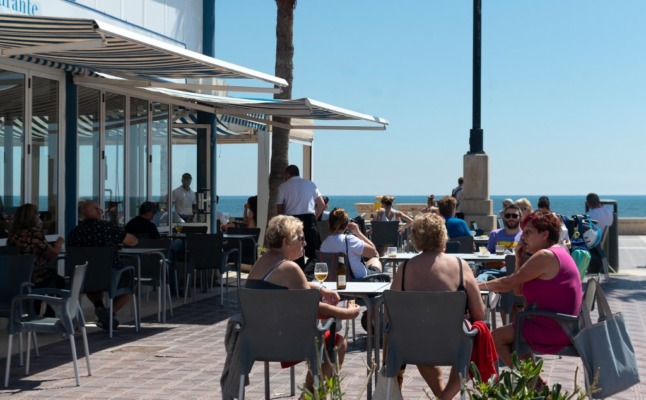The Comunidad Valenciana’s persistently low infection rate – currently 20 cases per 100,000 people over the past 14 days – has allowed regional authorities to ease coronavirus restrictions, some of the strictest in Spain since the start of the third wave in January.
Here’s what you need to know if you’re living in or visiting the Valencia region soon.
Curfew
The curfew will remain in place in the region after May 24th but it will start later than previously, at 1am instead of midnight. That means that except for exceptional reasons, nobody can be outdoors from 1am to 6am.
Valencian regional president Ximo Puig has stressed that if the epidemiological situation remains stable, the curfew – or toque de queda in Spanish – will be lifted as of June 7th.
Bars, cafés and restaurants
From Monday 24th, bars, restaurants and cafés can stay open until 12.30 am, one hour later than the previous closing time.
A capacity of 50 percent is allowed inside the premises and 100 percent on outdoor terraces.
Sitting at the bar, smoking (including electronic cigarettes or hookahs) and dancing indoors or outdoors are still prohibited.
Family and social gatherings
A limit of 10 people is established in public spaces both outdoors and indoors, except in the case of people who are living under the same roof.
Inside homes and other private use spaces, the limit of 10 people also applies and only people from two households can gather.
Beaches and nature
The use of the mask is still mandatory when walking around on beaches, around swimming pools, lakes and other natural spaces.
However, as long as you can keep a distance of 1.5 metres with others, you will be allowed to take off your mask while sunbathing or sitting in one spot at the beach.
If you’re going for a dip in the sea, you don’t have to wear a mask as it’s incompatible with swimming, whereas if you’re going for a stroll along the shore you do have to keep your mask on.
Groups at the beach, swimming pool or in nature cannot exceed ten people.
Celebrations and events
The capacity is increased up to 75 percent for activities relating to celebrations, events or gatherings of a sporting, cultural or social nature, as well as for political rallies.
In churches and other places of worship it’s still important to abide by a safe distance of 1.5 metres between gatherers.
In enclosed spaces, a maximum of 3,000 people are allowed, while in open spaces, the limit is set at 4,000 people.
In both cases, the capacity has to be separated into groups of 1,000 people each.
In addition, eating and drinking will only be allowed in areas specially enabled for this purpose.
READ ALSO:
How Spain’s Valencia region achieved one of Europe’s lowest infection rates



 Please whitelist us to continue reading.
Please whitelist us to continue reading.
Member comments